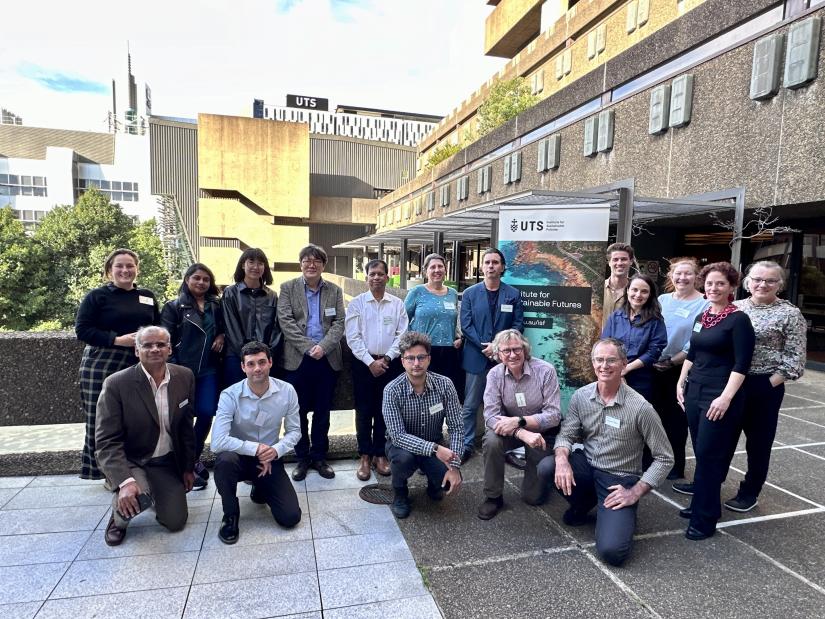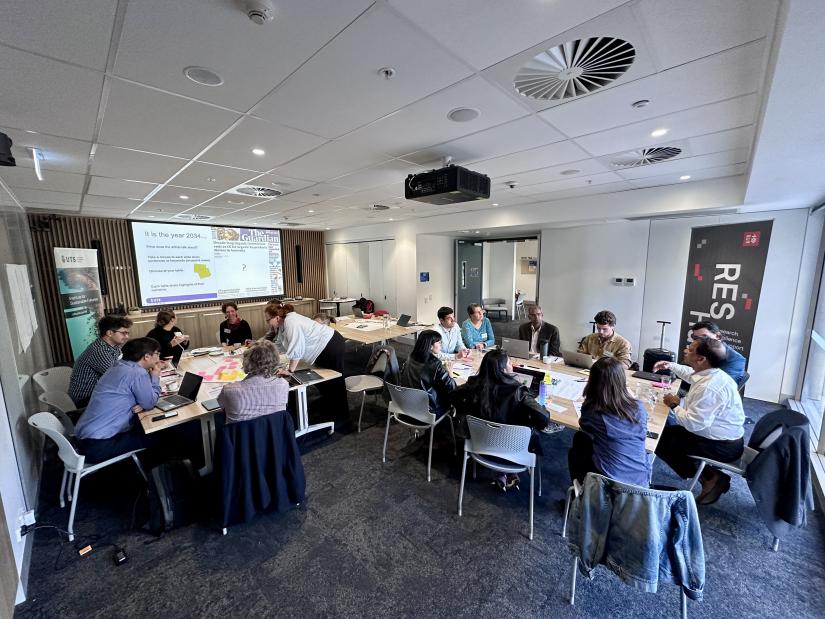At the Organix24 Researcher Workshop, national experts shared circular economy ideas for transforming organic by-products like food waste and excreta into valuable resources while meeting net zero targets.

If Australia wants to meet its net zero targets by 2050, we need to fundamentally transform the way we capture and reuse organic by-products.
This was the central theme of the Organix24 Researcher Workshop, held in August by the UTS Institute for Sustainable Futures (ISF) in partnership with Victoria University.
The workshop provided a platform for institutions to showcase their research, hear about the latest developments in Australia, network with other experts, and contribute to setting the research agenda for transforming the circular economy of food and organic by-products.
Capturing and recirculating organic by-products from Australia’s food waste, wastewater and manures offers major co-benefits.
– A/Prof Dana Cordell, ISF
ISF Associate Professor Dana Cordell, one of the project co-leads, says “Capturing and recirculating organic by-products from Australia’s food waste, wastewater and manures offers major co-benefits.”
“We’re able to generate bioenergy and renewable fertilisers, while also securing water quality and protecting the environment.”
However, different sectors are rapidly developing their circular economy initiatives in isolation from one another. The Organix24 Researcher Workshop aimed to synthesise these ideas. 25 national experts participated, sharing their research and engaging in discussions around the barriers and opportunities for scaling up circular economy systems for food and organic by-products.
The day began with a site visit to the Malabar Water Resource Recovery Facility Plant – Australia’s first wastewater plant to inject renewable biomethane, generated from processing sewage and organic wastes, into the national natural gas grid.
This was followed by a series of interactive sessions at UTS in Sydney which showcased the latest research and innovations in the field, focusing on overcoming key bottlenecks and exploring opportunities for scaling up circular economy initiatives.

Participants at one of the workshop sessions at UTS.
ISF Research Director and project co-lead Melita Jazbec says, “A successful transformation requires a coordinated approach in which research and development plays a fundamental role. Events like this enable collaboration and sharing of the ideas.”
This researchers’ workshop was a follow-up to the successful stakeholders Organix19 Summit and served as a precursor to the upcoming Organix25 Summit. In the inaugural Organix19 Summit in 2019 more than 80 stakeholders along the Sydney basin organic value chain collectively developed a 20-year vision for a transformed system based on circular economy principles, which since informed policy and strategies across NSW.
Organix25 aims to bring the stakeholders together to build on this foundation, expanding the focus to the whole of Australia.
The event underscores the importance of collaborative efforts and innovative research in achieving a sustainable future for Australia’s organic by-products.
This project was led by UTS’s Institute for Sustainable Futures, in partnership with Victoria University’s Business School. The workshop was sponsored by the EU RecaP Project and University of Leeds.

